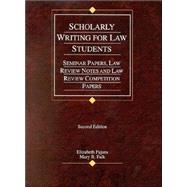|
1 | (18) | |||
|
1 | (4) | |||
|
5 | (9) | |||
|
6 | (4) | |||
|
10 | (2) | |||
|
12 | (2) | |||
|
14 | (5) | |||
|
16 | (3) | |||
|
19 | (32) | |||
|
20 | (7) | |||
|
23 | (1) | |||
|
24 | (3) | |||
|
27 | (24) | |||
|
28 | (1) | |||
|
29 | (1) | |||
|
29 | (3) | |||
|
32 | (3) | |||
|
35 | (1) | |||
|
35 | (3) | |||
|
38 | (1) | |||
|
39 | (3) | |||
|
42 | (1) | |||
|
43 | (2) | |||
|
45 | (3) | |||
|
48 | (1) | |||
|
49 | (2) | |||
|
51 | (12) | |||
|
52 | (7) | |||
|
52 | (2) | |||
|
54 | (1) | |||
|
54 | (1) | |||
|
55 | (2) | |||
|
57 | (2) | |||
|
59 | (4) | |||
|
61 | (2) | |||
|
63 | (18) | |||
|
64 | (7) | |||
|
64 | (4) | |||
|
68 | (1) | |||
|
68 | (1) | |||
|
69 | (1) | |||
|
70 | (1) | |||
|
71 | (7) | |||
|
72 | (1) | |||
|
73 | (5) | |||
|
78 | (3) | |||
|
81 | (24) | |||
|
81 | (2) | |||
|
83 | (1) | |||
|
84 | (4) | |||
|
88 | (9) | |||
|
89 | (1) | |||
|
90 | (1) | |||
|
91 | (1) | |||
|
91 | (3) | |||
|
94 | (1) | |||
|
94 | (3) | |||
|
97 | (2) | |||
|
99 | (2) | |||
|
101 | (4) | |||
|
102 | (1) | |||
|
103 | (2) | |||
|
105 | (16) | |||
|
107 | (2) | |||
|
109 | (6) | |||
|
115 | (6) | |||
|
117 | (4) | |||
|
121 | (20) | |||
|
121 | (11) | |||
|
122 | (1) | |||
|
123 | (1) | |||
|
124 | (1) | |||
|
124 | (1) | |||
|
125 | (1) | |||
|
125 | (1) | |||
|
126 | (1) | |||
|
126 | (1) | |||
|
127 | (1) | |||
|
127 | (1) | |||
|
128 | (1) | |||
|
128 | (1) | |||
|
129 | (1) | |||
|
129 | (1) | |||
|
130 | (2) | |||
|
132 | (1) | |||
|
132 | (9) | |||
|
132 | (1) | |||
|
133 | (1) | |||
|
134 | (1) | |||
|
135 | (1) | |||
|
136 | (1) | |||
|
136 | (1) | |||
|
136 | (1) | |||
|
137 | (1) | |||
|
137 | (1) | |||
|
138 | (3) | |||
|
141 | (22) | |||
|
142 | (8) | |||
|
143 | (3) | |||
|
146 | (1) | |||
|
146 | (4) | |||
|
150 | (7) | |||
|
150 | (2) | |||
|
152 | (5) | |||
|
157 | (2) | |||
|
159 | (2) | |||
|
161 | (2) | |||
|
163 | (22) | |||
|
164 | (3) | |||
|
167 | (10) | |||
|
167 | (1) | |||
|
168 | (2) | |||
|
170 | (1) | |||
|
171 | (2) | |||
|
173 | (1) | |||
|
174 | (3) | |||
|
177 | (6) | |||
|
177 | (1) | |||
|
177 | (1) | |||
|
178 | (1) | |||
|
178 | (1) | |||
|
178 | (1) | |||
|
179 | (1) | |||
|
180 | (3) | |||
|
183 | (2) | |||
|
185 | (4) | |||
| Appendix A: Sample Casenote/Competition Paper | 189 | (16) | |||
| Appendix B: Answers to Exercises | 205 | (6) | |||
|
205 | (2) | |||
|
207 | (2) | |||
|
209 | (2) | |||
| Appendix C: Scholarly Writing Workshops and Courses | 211 | ||||
|
211 | ||||
|
212 | ||||
|
213 | ||||
|
215 | ||||
|
217 | ||||
|
217 |









